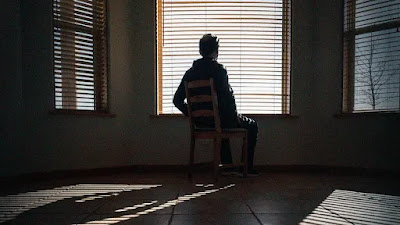Depression and Erectile Dysfunction - Breaking the Link
Is there a connection between sexual dysfunction and depression? Yes, according to
research: 35 to 47 percent of depressed individuals report having issues with their sexual life, 61 percent of those with severe depression experience such issues, and up to 40 percent of those taking conventional antidepressants report a decline in sexual satisfaction. According to one study, 82% of men with erectile dysfunction also had signs of depression.The sexual urge that causes you to have an erection starts in your brain. When there aren’t enough brain chemicals to stimulate the blood flow needed for an erection, erectile dysfunction results. Depression causes these brain chemicals to get out of balance, and that can mean you have less desire for sex — and you can’t perform well.
Warning Signs of Depression and Erectile Dysfunction
Erectile dysfunction is a common problem. It is estimated that half of all men over age 50 will experience erectile dysfunction from time to time. How do you know if depression is part of the problem? Watch out for these warning signs:
~You have lost the desire for sex, and sex no longer feels pleasurable.
~Your doctor has prescribed an antidepressant and it is affecting your sex life.
~You start to experience erectile dysfunction after a stressful life event, such as the loss of a job or a loved one or another family trauma.
~You have erectile dysfunction along with strong feelings of anxiety, frustration, and stress.
~Erectile dysfunction is associated with feeling negative about yourself.
How to Get Help for Depression and Erectile Dysfunction
The first step in getting help for erectile dysfunction and depression is overcoming the urge not to talk about it or assuming that it is simply a normal part of stress or aging. In many cases there are medical causes of depression and erectile dysfunction, and in most cases both issues can be treated successfully. Here are some steps you can take:
~Have a complete medical evaluation and tell your doctor about your problems with your sex life.
~If you are on an antidepressant, your doctor may switch your medication or lower your dose.
~Your doctor may start you on medications to treat erectile dysfunction and/or depression.
~Your doctor may recommend counseling with a mental health professional.
The Importance of Partner Support
To keep erectile dysfunction from affecting your relationship with your partner, open the lines of communication and talk honestly about the situation. Through mutual support and understanding, this “couple's problem” is best solved by approaching it as a team.
The other partner in a relationship can help in many ways, once he or she is comfortable talking about it. Here are points to keep in mind:
~It’s a good idea to go along with your partner on doctor visits.
~Avoid being judgmental and adopt a positive approach.
~Consider seeing a mental health professional together.
~Learn as much as you can about erectile dysfunction.
~Watch out for drugs, excessive alcohol consumption, and smoking, negative habits that are more common with depression and that can add to erectile dysfunction.
Erectile dysfunction can damage your sex life and your self-esteem. Whether depression or erectile dysfunction comes first, they often occur together. The good news is that they can both be treated. Start by being honest about your sex life and your feelings with your partner and your doctor. Know the warning signs and ask for help.





Comments
Post a Comment